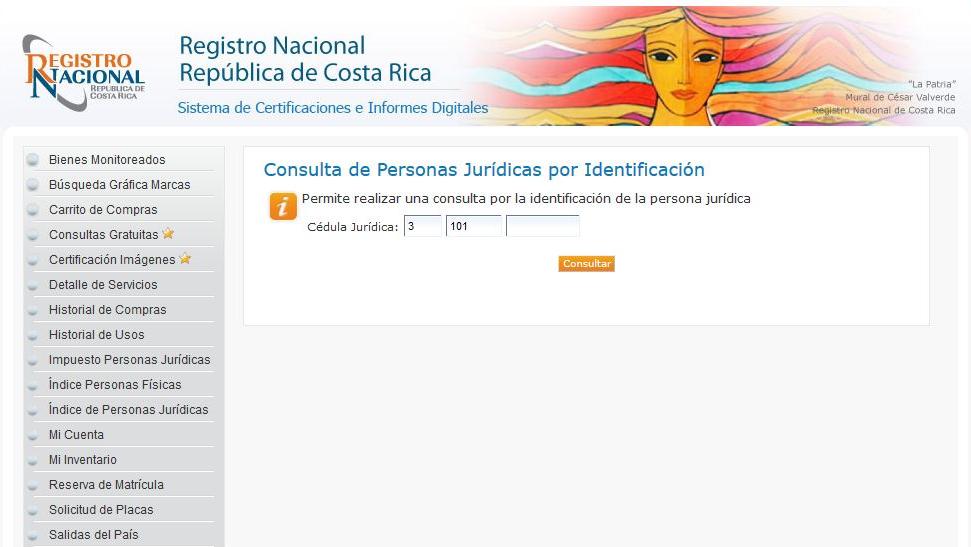Costa Rica News – On September 1, the ‘Corporations Tax‘, (Impuesto Personas Juridicas in Spanish) kicks in again, where all active and inactive corporations subject to paying a yearly tax.
Although the collection of 2012 corporations tax law struck down by the Constitutional Court in 2015 and payment suspended starting in 2016, corporations that did not pay the tax, part or in full, for the periods 2012, 2013, 2014 and including 2015, became delinquent.
The Registro Nacional (national registry) warned repeatedly that delinquent corporations could face dissolution. And to that end, it began the process.
In October 2016, of the 336.534 delinquent corporations, 266,387 had accumulated the three periods without payment.
“In this month of August, the registration of said dissolutions in the Registry is concluded, for a total of 266,029 companies dissolved for non-payment,” reads the notice on the front page of the Registro Nacional.
How Do I Find Out If My Corporation Has Been Dissolved and How Much I Owe?
To find out the status of your corporation, go to the Registro Nacional (the system is only in Spanish) and click on “Sistemas de Certificaciones y Consultas Gratuitas” which will take you to this page. To continue you must log in or create an account (no charge). Once in, click on “Indice de Personas Juridicas” on the left-hand menu, enter the cedula juridica and number and press “buscar”.
On the same page, click on “Impuesto Personas Juridicas” on the left menu, enter the cedula number and you will see all outstanding payments due and interest.
The dissolution is based on Ley 9024.
In the alternative, you can hire a lawyer to get the information for you.
What to do to stop the dissolution of your corporation?
Pay the outstanding balance or enter into a payment arrangement with the National Registry.
Payment arrangements can be up to 24 months. But, don’t miss a single payment. Interest charges stop once you enter into a payment agreement, and stay null as long as regular payments are made. Miss a payment, interest charges kick in again.
Does the debt disappear if my corporation is dissolved?
No, it does not. The dissolution of a delinquent corporation is not a cause for erasing the tax obligation. In addition to the outstanding amount, there is accumulating interest on the debt,
What if I have the money to pay the debt in full?
The Bank of Costa Rica (BCR) is the only bank authorized to receive payments for any payment of outstanding debts for 2012, 2013, 2014 and 2015 periods.
What happens to assets held in the now dissolved corporation?
Many foreigners have held and continue to hold their vehicles in an S.A. (Costa Rica corporation). Other assets held in S.A.’s include property and bank accounts.
But, for not being aware of the dissolution process undertaken by the national registry, not having the ability to pay or a resistance to pay – the reasons are not important – the tax was not paid and your corporation is now dissolved.
The debt becomes a preferential mortgage or preferential lien, respectively, in the case of immovable property (ie. real estate) or movable property (ie. a vehicle) owned by (registered to) the corporation.
The fact that the corporation has been dissolved under the Ley 9024 does not mean the corporation no longer it exists, it does not mean the debt is erased.
Under normal dissolution, the legal entity, although dissolved, does not cease to exist, erased from the registry, until it is liquidated.
Legal entities have a different cycle of existence than that of natural persons. The birth of corporation happens with its inscription in the Registry and continues until dissolved. But with dissolution corporations do not disappear.
This is where I can make a comparison: natural persons are born, live and die so that the liquidation of their assets is done through a process of succession after the death. Legal entities are born with their registration and eventually become dissolved, but they continue to exist juridically and as long as their assets are not liquidated. This means that a dissolved company is still alive and maintains its legal personality in a final stage of its existence that is called “liquidation phase”.
Expressly, the Commercial Code (Código de Comercio in Spanish) states that “the dissolved company, it will enter into liquidation, retaining its legal personality for the effects of it. The liquidation will be carried out by one or more liquidators, who will be the administrators and legal representatives of the company in liquidation. Liquidators are responsible for paying debts, transfer assets and eventually pay out the partners. After the liquidation, the registration of the company is canceled and then legally disappears.”
But, with the dissolution under Ley 9024, the situation is not all that clear, in fact, it’s all messed up.
Since the Registry is dissolving delinquent corporations – killing them legally – before their time and without assets liquidated or transferred, the assets remain in a kind of limbo, since the liquidators can not transfer property of a corporation that no longer exists and the Registry cannot issue a ‘personeria juridica’ (certificate) that is required for legal transactions with respect to the corporation.
What about bank accounts held by my dissolved corporation?
Banks accounts add to the mess. The National Registry has not issued any instruction, request or guideline relating to the freezing of bank accounts of dissolved corporations by Ley 9024, nor does it have any legal authority to close bank accounts of any company, either active or inactive.
From the Registro Nacional front page, “El Registro Nacional no ha emitido ninguna instrucción, solicitud o directriz relacionada con el congelamiento de cuentas bancarias de las entidades morosas del Impuesto a Personas Jurídicas creado por la Ley 9024 y NO tiene potestad legal alguna para cerrar cuentas de bancos a ninguna sociedad, ya sea activa o inactiva”
Disclaimer: Everything in this article is the most current and accurate information I could find. The information IS NOT to be construed as legal advice. Recommend you to consult a lawyer or other professional in these matters.
From QCostaRica


